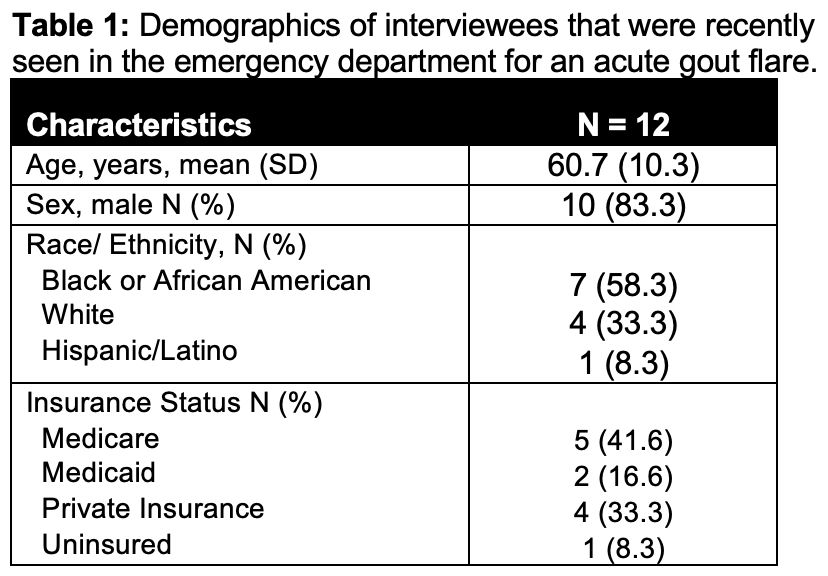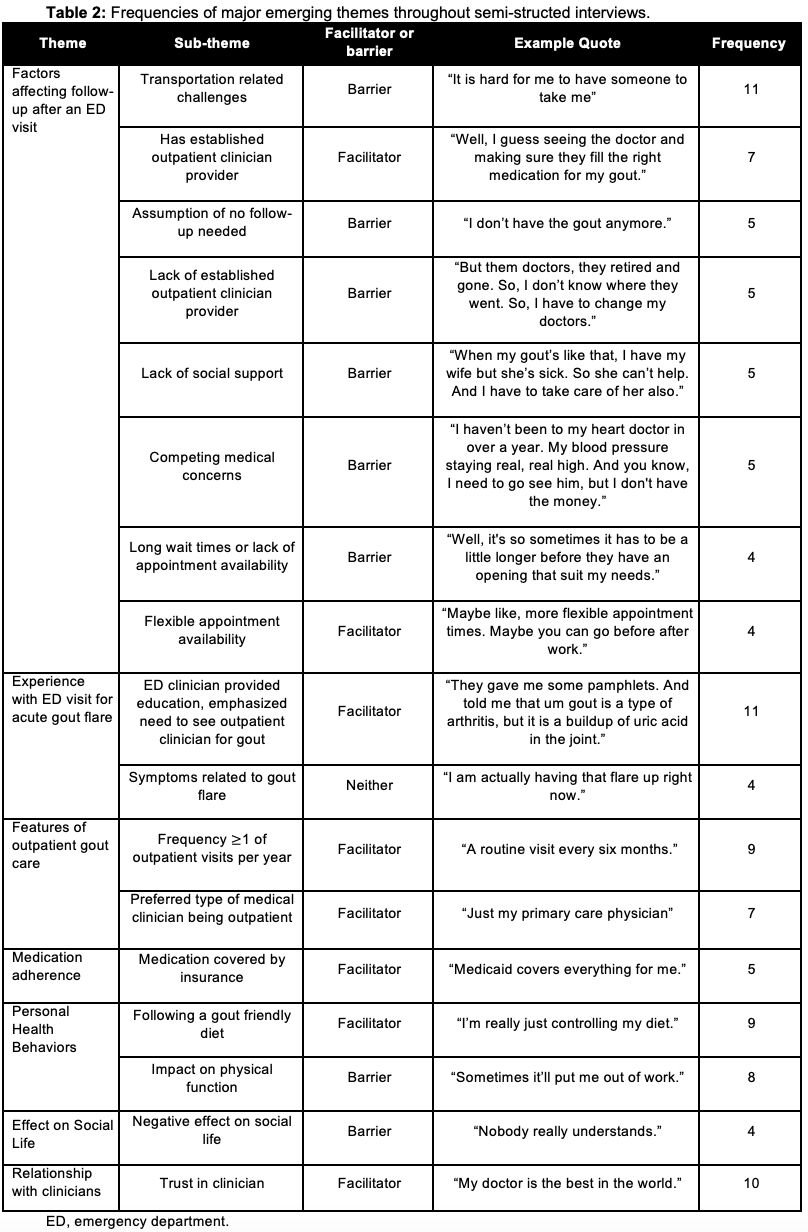Session Information
Date: Saturday, November 16, 2024
Title: Metabolic & Crystal Arthropathies – Basic & Clinical Science Poster I
Session Type: Poster Session A
Session Time: 10:30AM-12:30PM
Background/Purpose: Many people with gout utilize the emergency department (ED) for acute gout care, but many do not receive subsequent adequate outpatient care for long-term gout management. We aimed to identify barriers and facilitators to receiving outpatient follow-up for gout and adherence to outpatient gout treatments to identify potential targets for future interventions.
Methods: We developed a semi-structured interview guide addressing 3 areas of gout care: experience during an ED visit for acute gout, and barriers and facilitators to follow-up and gout medication adherence. We recruited people with a confirmed gout flare at our institution and who did not have an outpatient follow-up for gout within 3-months after the ED visit. We contacted potential participants by phone. Eligible participants were consented for a semi-structured phone interview created using the social ecological framework to examine the interplay between personal and societal influences on gout follow up. Interviews were audio recorded and transcribed using Nvivo and checked for accuracy. Transcripts were coded independently and emerging themes and sub-themes were analyzed using reflexive thematic analysis using NVivo 12.
Results: Twelve individuals mean (SD) age 61 years, 7 (83%) Black or African American were interviewed to reach thematic saturation (Table 1) out of 70 people contacted. Barriers and facilitators were organized into 7 major themes and 22 sub-themes following a social ecological framework (Table 2). Lack of reliable transportation and of an established outpatient clinician were significant barriers to follow-up in 75% and 42% of interviewees. The impact of gout on an individual’s physical function to go to clinic was a barrier for 67% of people, and 33% reported gout having a negative effect on their social life. Facilitators included ED clinician providing information on gout including emphasis on the need to follow up in the outpatient setting (92%), having an established outpatient clinician provider for their gout care (58%), trust in treating clinician (83%), and adhering to a low purine diet (75%).
Conclusion: Numerous individual and system-level factors influence outpatient gout care and medication adherence. It is crucial that clinicians are aware of common modifiable factors facing this patient population to improve quality of gout care.
To cite this abstract in AMA style:
Lopez E, Jackson L, Saag K, Danila M. Barriers and Facilitators for Outpatient Follow-Up After an Acute Gout Flare: A Qualitative Research Study [abstract]. Arthritis Rheumatol. 2024; 76 (suppl 9). https://acrabstracts.org/abstract/barriers-and-facilitators-for-outpatient-follow-up-after-an-acute-gout-flare-a-qualitative-research-study/. Accessed .« Back to ACR Convergence 2024
ACR Meeting Abstracts - https://acrabstracts.org/abstract/barriers-and-facilitators-for-outpatient-follow-up-after-an-acute-gout-flare-a-qualitative-research-study/


